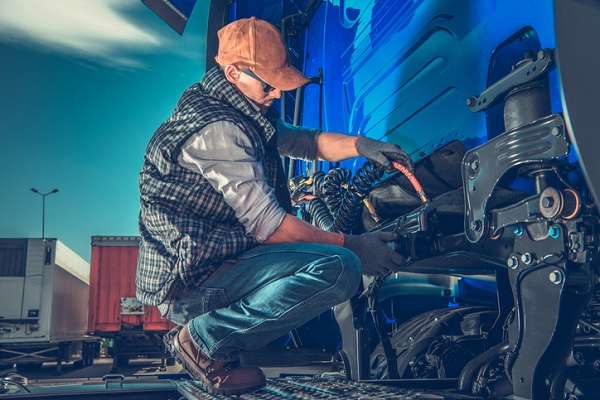
If you don’t want heavy trucks to wear down or malfunction, it’s important to take steps to keep them in prime condition. Heavy commercial trucks need their fair share of preventive maintenance, so that they avoid having a shortened lifespan, a lowered rate of availability, or major mechanical issues. Therefore, it’s important for anyone working in commercial trucking to have a preventive maintenance plan in place. Even as a dispatcher, you’ll want to know at least the basics of preventive maintenance in order to understand any issues your drivers are dealing with.
While regular service is an essential part of keeping trucks in optimal health, there are several dimensions to it that each need to be taken care of. Here are four things dispatcher students need to know about commercial truck preventive maintenance.
1. One of the Most Important Parts for Maintenance Is the Truck’s Tires
Since tires can represent about a third of a truck’s costs of maintenance, it’s a good idea to have the tread and pressure of the tires checked often. In some cases, tires will need to be replaced outright. This is the best course of action when trying to avoid a road call (meaning, the failure of the truck and the need to remove it from service) or a blowout where tire debris gets spread all over the road. Such situations are dangerous and also lead to downtime that you’ll want to avoid as a dispatcher.

2. Regular Maintenance is Also Needed Depending on Driving Habits
Aside from getting maintenance on the truck to keep it in tiptop shape and save money, it can also be necessary for drivers to inspect the vehicle on a daily basis. This is so that any repairs that may be necessary can be scheduled as soon as possible, especially if the truck has experienced a lot of wear and tear. Dispatch training students should also know that the truck’s condition is usually the driver’s responsibility, so encouraging drivers to keep a checklist of various parts for preventive maintenance can help keep the vehicle in the best possible shape.
3. Dispatch Training Students Should Recognize the Importance of Brakes
Brake maintenance is another major component of preventive maintenance for commercial trucks. Not only should drivers inspect the brakes themselves, but also the state of the air pressure system, the rate of build-up for air pressure, and the stroke of the brakes at every position. If there is an issue with the stroke, either an adjustment or a full-on replacement will be necessary. This is because automatic slack adjusters can fail or wear out easily, so it’s important to have it looked at in a repair shop.

4. Also, Be Sure the Correct Areas of the Truck Are Properly Lubricated
Very few parts of a truck have parts that are manually lubricated, so it’s important to properly apply grease to any components that will need it, such as U-joints or kingpins. Students at dispatcher schools should also know that some U-joints may not always have grease fittings on them. Despite these U-joints being able to drive at thousands of kilometres without needing lubrication, grease fittings will eventually need to be installed so that they won’t eventually fail. Therefore, preventive maintenance may need to be done between oil changes so that the truck will receive the lubrication it needs.
Want to take dispatcher courses?
Contact Automotive Training Centres to learn more!

